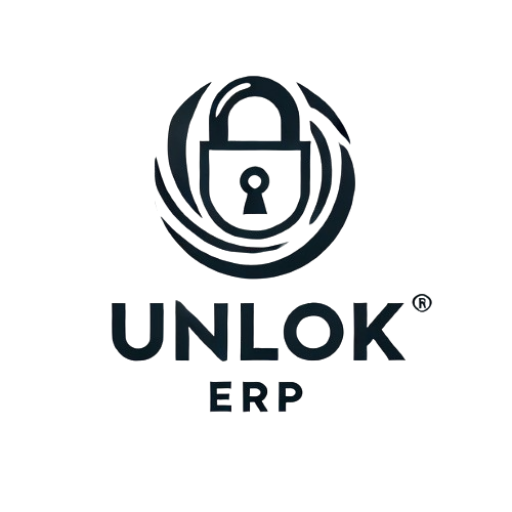
In the ever-evolving business landscape, small businesses face numerous challenges such as managing growth, improving efficiency, and staying ahead of the competition. One powerful tool that can help businesses streamline their operations and achieve sustainable growth is cloud-based ERP software. Unlike traditional on-premise solutions, cloud-based ERP is hosted remotely, offering businesses flexibility, scalability, and a wealth of other benefits. In this article, we’ll explore how cloud-based ERP can benefit small businesses and why it’s a game-changer for modern operations.
1. Cost-Effective for Small Businesses
For small businesses, managing operating costs is often a key challenge. Traditional ERP systems require hefty upfront investments for hardware, software, and maintenance. In contrast, cloud-based ERP operates on a subscription model, where you pay only for the features you need and scale as you grow. This eliminates large capital expenditures, making it more affordable for small businesses to access enterprise-level software. Additionally, cloud ERP reduces the need for extensive IT infrastructure, freeing up resources to focus on growing your business.
2. Scalability to Match Your Growth
As small businesses evolve, their needs often change. Cloud-based ERP systems are highly scalable, meaning you can easily add new features, users, and capabilities without the need for costly hardware upgrades. Whether you’re expanding your team, entering new markets, or introducing new products, a cloud-based ERP system grows with you. This adaptability makes it an ideal solution for businesses planning for long-term growth without having to worry about outgrowing their software.
3. Access Real-Time Data Anytime, Anywhere
One of the standout features of cloud-based ERP is real-time access to business data. Whether you’re in the office, at a client meeting, or working from home, you can access the latest information on sales, inventory, financials, and customer relationships. This instant access to accurate data allows you to make informed decisions quickly, helping your business remain agile and responsive to market changes. No more waiting for end-of-day reports or dealing with outdated spreadsheets.
4. Enhanced Collaboration Across Teams
In today’s connected world, businesses often have teams working from various locations. Cloud-based ERP facilitates better collaboration by allowing multiple users to access and edit data simultaneously. This eliminates silos and ensures that all departments are aligned and working from the same data set. Whether your sales, finance, or inventory teams are in different locations, everyone has access to the same up-to-date information, improving communication, reducing errors, and driving productivity.
5. Superior Security and Data Protection
Security is a top priority for any business, especially small businesses that may not have the resources to implement robust security measures. Cloud-based ERP solutions provide top-tier security features, such as data encryption, multi-factor authentication, and regular backups, ensuring that your sensitive data is protected against cyber threats and breaches. Cloud providers also invest in highly secure data centers, which offer physical protection and redundancy, ensuring your data is safe even in the event of a local disaster.
6. Automatic Updates and Maintenance
One of the key benefits of cloud-based ERP is that updates and maintenance are handled automatically by the service provider. You don’t need to worry about software upgrades or system patches—these are taken care of for you. This ensures that your system is always up-to-date with the latest features, improvements, and security measures. With cloud ERP, you save time and resources that would otherwise be spent on managing system updates, allowing your business to focus on core activities.
7. Seamless Integration with Other Tools
Most businesses use a variety of software tools to manage different aspects of their operations, such as CRM systems, accounting software, or marketing platforms. Cloud-based ERP systems are designed to integrate seamlessly with these other tools, creating a unified ecosystem where all your data flows into one central system. This eliminates data silos and streamlines workflows, improving efficiency across departments. Whether you’re using third-party apps for e-commerce, customer management, or payroll, cloud ERP ensures everything works together smoothly.
8. Business Continuity and Disaster Recovery
Data loss and system downtime can have a major impact on your business operations. Cloud-based ERP ensures business continuity by storing data in secure, off-site data centers. In the event of a disaster, such as a natural calamity or a technical failure, your business can quickly recover and resume operations. Cloud providers often have built-in disaster recovery plans, ensuring minimal disruption to your business and allowing you to restore data quickly without major delays.
Conclusion: Unlock the Power of Cloud ERP with Unlok ERP
Cloud-based ERP solutions offer significant advantages, especially for small businesses that need to streamline operations, reduce costs, and scale effectively. With features like real-time data access, automatic updates, and superior security, cloud ERP provides small businesses with the tools they need to remain competitive in a digital-first world.
At Unlok ERP, we specialize in helping businesses choose the right ERP system that meets their unique needs. Our ERP consultation services guide you through the process of selecting, customizing, and implementing the best cloud-based ERP solution for your business. Let us help you unlock the full potential of cloud ERP and take your business to the next level of efficiency, growth, and success.










